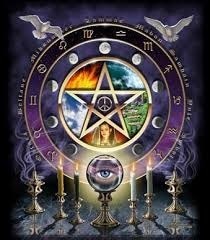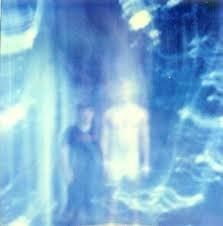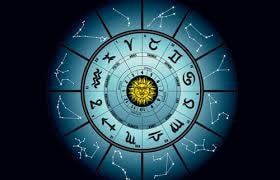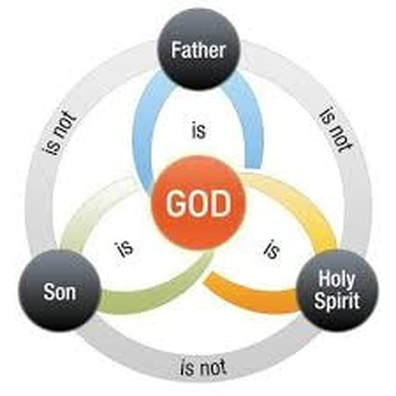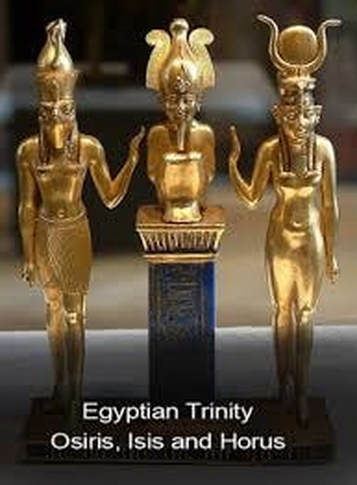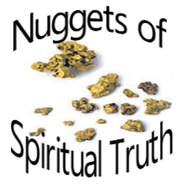Is There a Difference?
"God is spirit: and they that worship him must worship him in spirit and in truth." John 4:24
As we saw in the “Immortal Soul” lesson, there is a prevailing false belief existing in the majority of churches that man possesses a “soul” or “spirit” entity that continues living after he dies. We saw this same spurious concept in the lessons on “Hell” and “Heaven.” Is it possible this diabolical idea is also found in the belief of “Spiritism?”
What is "Spiritism"?
The unregenerate, carnal mind (heart) of man is depraved and wicked above all imagination (Jeremiah 17:9). This is especially true of his belief in the existence of supernatural "spirit beings" (both good and bad) that exist in an invisible spirit world (realm). This belief is summed up in the term “spiritism” which is alive and well today.
Some believe these so-called “spirit beings” possess the bodies of living humans and afflict them with all kinds of evil thoughts and dispositions (known as “demon-possession”). Some even believe these non-existent nefarious entities (usually called “demons” or “devils”) totally control those they possess, leaving them completely helpless to act on their own volition.
Others believe these false entities are ruled over by higher-level spirits who are overseen by a supreme supernatural being (called “Satan” or “The Devil” or “Lucifer”). Some see this supreme entity as the arch enemy of God and is responsible for all evil in the world. Such superstitious ideas have been used throughout history to control people through fear and intimidation. The same is true today. Fear and intimidation is used by Judeo-Christian churches, preachers, theologians, and teachers to control people. Even translators of our bibles have been influenced by this perverse concept.
The unregenerate, carnal mind (heart) of man is depraved and wicked above all imagination (Jeremiah 17:9). This is especially true of his belief in the existence of supernatural "spirit beings" (both good and bad) that exist in an invisible spirit world (realm). This belief is summed up in the term “spiritism” which is alive and well today.
Some believe these so-called “spirit beings” possess the bodies of living humans and afflict them with all kinds of evil thoughts and dispositions (known as “demon-possession”). Some even believe these non-existent nefarious entities (usually called “demons” or “devils”) totally control those they possess, leaving them completely helpless to act on their own volition.
Others believe these false entities are ruled over by higher-level spirits who are overseen by a supreme supernatural being (called “Satan” or “The Devil” or “Lucifer”). Some see this supreme entity as the arch enemy of God and is responsible for all evil in the world. Such superstitious ideas have been used throughout history to control people through fear and intimidation. The same is true today. Fear and intimidation is used by Judeo-Christian churches, preachers, theologians, and teachers to control people. Even translators of our bibles have been influenced by this perverse concept.
Where Did “Spiritism” Originate?
The belief in supernatural spirit beings comes from men’s imaginations (the fear of myths and the unknown) and can be found in virtually all pagan religions, beginning in Babylon and continuing on through Persia, Greece and Rome. The Israelites picked up on these pagan concepts during their captivities (Babylon and Assyria) and brought them back to Judea where they incorporated them into their religion (tradition of the elders). In New Testament times, these beliefs along with Greek and Roman ideas crept into so-called “Christian” doctrines and writings, even influencing bible translators. Jesus and the Apostles denounced these pagan ideas often in their preaching of the Gospel message.
What Does God Say About Spiritism?
God’s Holy Word is specific regarding the various acts of spiritism and how God looks at them. Consider the following references.
God’s Holy Word is specific regarding the various acts of spiritism and how God looks at them. Consider the following references.
Deuteronomy 18:9-14
“When thou art come into the land which the LORD thy God giveth thee, thou shalt not learn to do after the abominations of those nations. There shall not be found among you any one that maketh his son or his daughter to pass through the fire, or that useth divination, or an observer of times, or an enchanter, or a witch, or a charmer, or a consulter with familiar spirits, or a wizard, or a necromancer. For all that do these things are an abomination unto the LORD: and because of these abominations the LORD thy God doth drive them out from before thee. Thou shalt be perfect with the LORD thy God. For these nations, which thou shalt possess, hearkened unto observers of times, and unto diviners: but as for thee, the LORD thy God hath not suffered thee so to do.”
II Kings 21:6
“And he made his son pass through the fire, and observed times, and used enchantments, and dealt with familiar spirits and wizards: he wrought much wickedness in the sight of the LORD, to provoke him to anger.”
Leviticus 19:31
“A man also or woman that hath a familiar spirit, or that is a wizard, shall surely be put to death: they shall stone them with stones: their blood shall be upon them.”
Also check out: Leviticus 20:27 and 2 Chronicles 33:6
It is obvious that God is not pleased with those who practice “spiritism.” He does not want us to get involved in these heathen activities. They are an abomination to Him. These are stern warnings.
“When thou art come into the land which the LORD thy God giveth thee, thou shalt not learn to do after the abominations of those nations. There shall not be found among you any one that maketh his son or his daughter to pass through the fire, or that useth divination, or an observer of times, or an enchanter, or a witch, or a charmer, or a consulter with familiar spirits, or a wizard, or a necromancer. For all that do these things are an abomination unto the LORD: and because of these abominations the LORD thy God doth drive them out from before thee. Thou shalt be perfect with the LORD thy God. For these nations, which thou shalt possess, hearkened unto observers of times, and unto diviners: but as for thee, the LORD thy God hath not suffered thee so to do.”
II Kings 21:6
“And he made his son pass through the fire, and observed times, and used enchantments, and dealt with familiar spirits and wizards: he wrought much wickedness in the sight of the LORD, to provoke him to anger.”
Leviticus 19:31
“A man also or woman that hath a familiar spirit, or that is a wizard, shall surely be put to death: they shall stone them with stones: their blood shall be upon them.”
Also check out: Leviticus 20:27 and 2 Chronicles 33:6
It is obvious that God is not pleased with those who practice “spiritism.” He does not want us to get involved in these heathen activities. They are an abomination to Him. These are stern warnings.
Various Forms of “Spiritism”
A variety of terms are used when referring to “Spiritism.”
Some common ones are described below.
A variety of terms are used when referring to “Spiritism.”
Some common ones are described below.
- Demons: evil spirits or devils that can possess people.
- Devils: supernatural entities that have power over people.
- Satan: supreme supernatural entity in charge of all demons and devils.
- Angels: supernatural winged entities.
- Diviners: those seeking knowledge by contacting “spirit” entities.
- Necromancers: those communicating with “spirits” of dead people.
- Mediums: those acting as go-betweens when communicating with the dead.
- Familiar Spirits: supernatural entities involved in witchcraft.
- Sorcerers: those practicing witchcraft.
- Ghosts: spirits or souls of dead people.
- Enchanters/Charmers: persons using magic or sorcery to cast spells.
- Wizards: those who have magical powers.
- Fortune Tellers: those who predict future events through magical power.
- Magicians: those using supernatural powers.
What is "Spirit"
Modern Dictionary Definition of "Spirit"
The American Heritage Dictionary states the following:
spir·it ˈspirit/noun
1. That which is traditionally believed to be the vital principle or animating force within
living beings.
2. The essential and activating principle of a person.
3. A person as characterized by some stated quality.
4. An inclination or tendency of a special kind.
5. One's mood or emotional state.
Latin, spiritus, from spirare, to breathe (An Etymological Dictionary of Modern English)
The American Heritage Dictionary states the following:
spir·it ˈspirit/noun
1. That which is traditionally believed to be the vital principle or animating force within
living beings.
2. The essential and activating principle of a person.
3. A person as characterized by some stated quality.
4. An inclination or tendency of a special kind.
5. One's mood or emotional state.
Latin, spiritus, from spirare, to breathe (An Etymological Dictionary of Modern English)
What the Bible Says About “Spirit”
Throughout the Bible, the word “spirit” is translated from the Hebrew word ruwach (#7307 in Strong’s) in the Old Testament and the Greek word pneuma (#4151 in Strong’s) in the New Testament. Both words have the same meanings: air, breath, life, mental disposition, mind, that which causes motion or action (motivation). Let’s look at some scriptural examples to see how “spirit” is used.
Throughout the Bible, the word “spirit” is translated from the Hebrew word ruwach (#7307 in Strong’s) in the Old Testament and the Greek word pneuma (#4151 in Strong’s) in the New Testament. Both words have the same meanings: air, breath, life, mental disposition, mind, that which causes motion or action (motivation). Let’s look at some scriptural examples to see how “spirit” is used.

Genesis 1:1-2
"In the beginning God created the heaven and the earth. And the earth was without form, and void; and darkness was upon the face of the deep. And the spirit [ruwach, #7307] of God moved upon the face of the waters."
Deuteronomy 2:30
"But Sihon king of Heshbon would not let us pass by him: for the LORD thy God hardened his spirit [ruwach], and made his heart obstinate, that he might deliver him into thy hand, as appeareth this day."
Judges 3:10
“And the spirit [ruwach] of the LORD came upon him, and he judged Israel, and went out to war: and the LORD delivered Chushanrishathaim king of Mesopotamia into his hand; and his hand prevailed against Chushanrishathaim.”
Haggai 1:14
“And the LORD stirred up the spirit [ruwach] of Zerubbabel the son of Shealtiel, governor of Judah, and the spirit [ruwach] of Joshua the son of Josedech, the high priest, and the spirit of all the remnant of the people; and they came and did work in the house of the LORD of hosts, their God,…”
Acts 18:5
“And when Silas and Timotheus were come from Macedonia, Paul was pressed in the spirit [pneuma], and testified to the Jews that Jesus was Christ.”
See also: 2 Chronicles 15:1-2, Judges 13:25, Ezra 1:1, Acts 17:16, Romans 8:14
"In the beginning God created the heaven and the earth. And the earth was without form, and void; and darkness was upon the face of the deep. And the spirit [ruwach, #7307] of God moved upon the face of the waters."
Deuteronomy 2:30
"But Sihon king of Heshbon would not let us pass by him: for the LORD thy God hardened his spirit [ruwach], and made his heart obstinate, that he might deliver him into thy hand, as appeareth this day."
Judges 3:10
“And the spirit [ruwach] of the LORD came upon him, and he judged Israel, and went out to war: and the LORD delivered Chushanrishathaim king of Mesopotamia into his hand; and his hand prevailed against Chushanrishathaim.”
Haggai 1:14
“And the LORD stirred up the spirit [ruwach] of Zerubbabel the son of Shealtiel, governor of Judah, and the spirit [ruwach] of Joshua the son of Josedech, the high priest, and the spirit of all the remnant of the people; and they came and did work in the house of the LORD of hosts, their God,…”
Acts 18:5
“And when Silas and Timotheus were come from Macedonia, Paul was pressed in the spirit [pneuma], and testified to the Jews that Jesus was Christ.”
See also: 2 Chronicles 15:1-2, Judges 13:25, Ezra 1:1, Acts 17:16, Romans 8:14
Let us look at some other renderings of the Hebrew word "ruwach" and the Greek word "pneuma" to get a better understanding of the concept of "spirit" as used in God's Word.
There is a clear, close relationship between the words “spirit” and “breath” as can be discovered in these verses. We can see from these Scriptures that the Hebrew word “ruwach” was translated as “breath” and “spirit,” showing their similar meaning. Both words can refer to air in motion and indicate “life.”
Isaiah 42:5
“Thus saith God the LORD, he that created the heavens, and stretched them out; he that spread forth the earth, and that which cometh out of it; he that giveth breath [ruwach] unto the people upon it, and spirit [ruwach] to them that walk therein: …”
Job 27:3
“All the while my breath [ruwach] is in me, and the spirit [ruwach] of God is in my nostrils…”
Ecclesiastes 3:19
“For that which befalleth the sons of men befalleth beasts; even one thing befalleth them: as the one dieth, so dieth the other; yea, they have all one breath; [ruwach] so that a man hath no preeminence above a beast: for all is vanity.”
2 Samuel 22:16
“And the channels of the sea appeared, the foundations of the world were discovered, at the rebuking of the LORD, at the blast of the breath [ruwach] of his nostrils.”
See also: Genesis 6:17, Ezekiel 37:5
The word “wind”, as with “spirit,” is translated from the Hebrew word “ruwach” and the Greek word “pneuma.” This shows a similar meaning, as the following passages indicate.
Genesis 8:1
“And God remembered Noah, and every living thing, and all the cattle that was with him in the ark: and God made a wind [ruwach] to pass over the earth, and the waters assuaged;”
Psalm 1:4
“The ungodly are not so: but are like the chaff which the wind [ruwach] driveth away.”
Proverbs 25:23
“The north wind [ruwach] driveth away rain: so doth an angry countenance a backbiting tongue.”
John 3:8
“The wind [pneuma] bloweth where it listeth, and thou hearest the sound thereof, but canst not tell whence it cometh, and whither it goeth: so is every one that is born of the spirit [pneuma].” (Note: “wind” and “spirit” are both translated from “pneuma.”)
Acts 2:2
“And suddenly there came a sound from heaven as of a rushing mighty wind [pneuma], and it filled all the house where they were sitting.”
James 1:6
“But let him ask in faith, nothing wavering. For he that wavereth is like a wave of the sea driven with the wind [pneuma] and tossed.”
See also: Numbers 11:31, 1 Kings 18:45, Isaiah 7:2, Jeremiah 18:17, Daniel 2:35, Acts 27:13
The Hebrew word “ruwach”, which is translated as “spirit” is also translated into the word “mind.” Examine the following examples.
Proverbs 29:11
“A fool uttereth all his mind [ruwach]: but a wise man keepeth it in till afterwards.”
Ezekiel 11:5
“And the spirit [ruwach] of the LORD fell upon me, and said unto me, Speak; Thus saith the LORD; Thus have ye said, O house of Israel: for I know the things that come into your mind [ruwach], every one of them.”
(Note: “spirit” and “mind” are both translated from the same Hebrew word “ruwach”)
Daniel 5:20
“But when his heart was lifted up, and his mind [ruwach] hardened in pride, he was deposed from his kingly throne, and they took his glory from him:”
Habakkuk 1:11
“Then shall his mind [ruwach] change, and he shall pass over, and offend, imputing this his power unto his god.”
See also: Genesis 26:35, Ezekiel 20:32
Proverbs 29:11
“A fool uttereth all his mind [ruwach]: but a wise man keepeth it in till afterwards.”
Ezekiel 11:5
“And the spirit [ruwach] of the LORD fell upon me, and said unto me, Speak; Thus saith the LORD; Thus have ye said, O house of Israel: for I know the things that come into your mind [ruwach], every one of them.”
(Note: “spirit” and “mind” are both translated from the same Hebrew word “ruwach”)
Daniel 5:20
“But when his heart was lifted up, and his mind [ruwach] hardened in pride, he was deposed from his kingly throne, and they took his glory from him:”
Habakkuk 1:11
“Then shall his mind [ruwach] change, and he shall pass over, and offend, imputing this his power unto his god.”
See also: Genesis 26:35, Ezekiel 20:32
“Ruwach” is also translated into the word “air”.
Job 41:16. “One is so near to another, that no air [ruwach] can come between them.”
Job 41:16. “One is so near to another, that no air [ruwach] can come between them.”
The Greek word “pneuma” is also translated into “life”.
Revelation 13:15. “And he had power to give life [pneuma] unto the image of the beast, that the image of the beast should both speak, and cause that as many as would not worship the image of the beast should be killed.”
Types of “Spirit” Mentioned in the Bible
From a scriptural perspective, “spirit” or “the spirit” refers to a desire, feeling, attitude or disposition which motivates an individual to move or act in a certain way. “Spirit,” then, influences the manner in which people think and behave: their mental disposition. Let’s look at some examples of types of “spirit” identified in the Scriptures.
|
|
The kinds of “spirit” mentioned in the above passages of Scripture refer to the states of mind that influence (motivate) human behavior (action). Some cause good behavior while some spur negative action. None of them refer to immaterial, invisible, supernatural “entities” or “beings.” Yet, there are many who think “spirit” refers to such mythical creatures (spiritism). This is largely due to repetitious training from early childhood by church leaders and misinformed family members.
Holy Spirit
Many in Christendom today have an inaccurate concept and understanding of the term “holy spirit” as used in the Bible due to their misguided belief in “spiritism.” Many of them actually believe “the Holy Spirit” is a supernatural “being” (entity) that is a part of what they call the “Godhead” (so-called “Trinity" doctrine).
"These illustrations depict two pagan concepts of the so-called"Trinity" Doctrine.
Since “spirit” refers to disposition or motivation, the term “holy spirit” must refer to a disposition or attitude of holiness (i.e. “godly motivation”). Thus, someone who has “holy spirit” has godly motives and is disposed to act accordingly. Let’s examine some Scriptures bearing this thought in mind.
Psalms 51:11
“Cast me not away from thy presence; and take not thy holy spirit [ruwach] from me.”
David is asking God not to take holy motivation (his disposition, attitude) away from him. In other words, David’s state of mind of holiness was from God (God gave it to him).
Micah 3:8
"But truly I am full of power by the spirit [ruwach] of the LORD, and of judgment, and of might, to declare unto Jacob his transgression, and to Israel his sin."
Luke 11:13
“If ye then, being evil, know how to give good gifts unto your children: how much more shall your heavenly Father give the holy spirit [pneuma] to them that ask him?”
Acts 1:8
"But ye shall receive power, after that the Holy Ghost [spirit, pneuma] is come upon you: and ye shall be witnesses unto me both in Jerusalem, and in all Judaea, and in Samaria, and unto the uttermost part of the earth."
Acts 2:38
"Then Peter said unto them, Repent, and be baptized every one of you in the name of Jesus Christ for the remission of sins, and ye shall receive the gift of the Holy Ghost." [spirit, pneuma]
1 Thessalonians 4:8
“He therefore that despiseth, despiseth not man, but God, who hath also given unto us his holy spirit [pneuma].”
The Scriptures above are talking about holy “motivation” or “disposition,” either God’s inherent holiness (essence, disposition) or the holy disposition (attitude) or motivating influence He gives to individuals.
Psalms 51:11
“Cast me not away from thy presence; and take not thy holy spirit [ruwach] from me.”
David is asking God not to take holy motivation (his disposition, attitude) away from him. In other words, David’s state of mind of holiness was from God (God gave it to him).
Micah 3:8
"But truly I am full of power by the spirit [ruwach] of the LORD, and of judgment, and of might, to declare unto Jacob his transgression, and to Israel his sin."
Luke 11:13
“If ye then, being evil, know how to give good gifts unto your children: how much more shall your heavenly Father give the holy spirit [pneuma] to them that ask him?”
Acts 1:8
"But ye shall receive power, after that the Holy Ghost [spirit, pneuma] is come upon you: and ye shall be witnesses unto me both in Jerusalem, and in all Judaea, and in Samaria, and unto the uttermost part of the earth."
Acts 2:38
"Then Peter said unto them, Repent, and be baptized every one of you in the name of Jesus Christ for the remission of sins, and ye shall receive the gift of the Holy Ghost." [spirit, pneuma]
1 Thessalonians 4:8
“He therefore that despiseth, despiseth not man, but God, who hath also given unto us his holy spirit [pneuma].”
The Scriptures above are talking about holy “motivation” or “disposition,” either God’s inherent holiness (essence, disposition) or the holy disposition (attitude) or motivating influence He gives to individuals.
However, this perverted idea is not in agreement with what we have seen regarding the meaning and use of the word “spirit”.
The use of the word "ghost" as seen often in the King James Version is an incorrect translation. It should be "spirit".
The use of the word "ghost" as seen often in the King James Version is an incorrect translation. It should be "spirit".
|
Conclusion
In this study we have compared the pagan concept of "spiritism" in its many forms to the biblical meaning and use of "spirit," and how different they are. We have identified what "spiritism" is, its various forms and its pagan origins. We have reviewed what God says about "spiritism", that it's an abomination to Him.
We have looked at examples of how the Hebrew word (ruwach) and the Greek word (pneuma), from which "spirit" is translated, are used in Scripture and what they mean. We have identified the various other terms that were translated from them (breath, wind, mind, air and life) and how they are related to "spirit."
We have also seen the many types of "spirit" found in the KJV Bible and the use of the terms "holy spirit" and "holy ghost." In NONE of the scripture passages cited is the pagan concept of "spirit beings (entities)" supported. It is an incorrect, misleading translation that leads to such convoluted thinking (spiritism) and corrupts the truth of God's Word.
In the lesson on "Demonism" we will look deeper into the pagan concept of "spiritism."
In this study we have compared the pagan concept of "spiritism" in its many forms to the biblical meaning and use of "spirit," and how different they are. We have identified what "spiritism" is, its various forms and its pagan origins. We have reviewed what God says about "spiritism", that it's an abomination to Him.
We have looked at examples of how the Hebrew word (ruwach) and the Greek word (pneuma), from which "spirit" is translated, are used in Scripture and what they mean. We have identified the various other terms that were translated from them (breath, wind, mind, air and life) and how they are related to "spirit."
We have also seen the many types of "spirit" found in the KJV Bible and the use of the terms "holy spirit" and "holy ghost." In NONE of the scripture passages cited is the pagan concept of "spirit beings (entities)" supported. It is an incorrect, misleading translation that leads to such convoluted thinking (spiritism) and corrupts the truth of God's Word.
In the lesson on "Demonism" we will look deeper into the pagan concept of "spiritism."
Bob & Mary Lou Becker - {contact us by using the form at the bottom of our Home Page}

